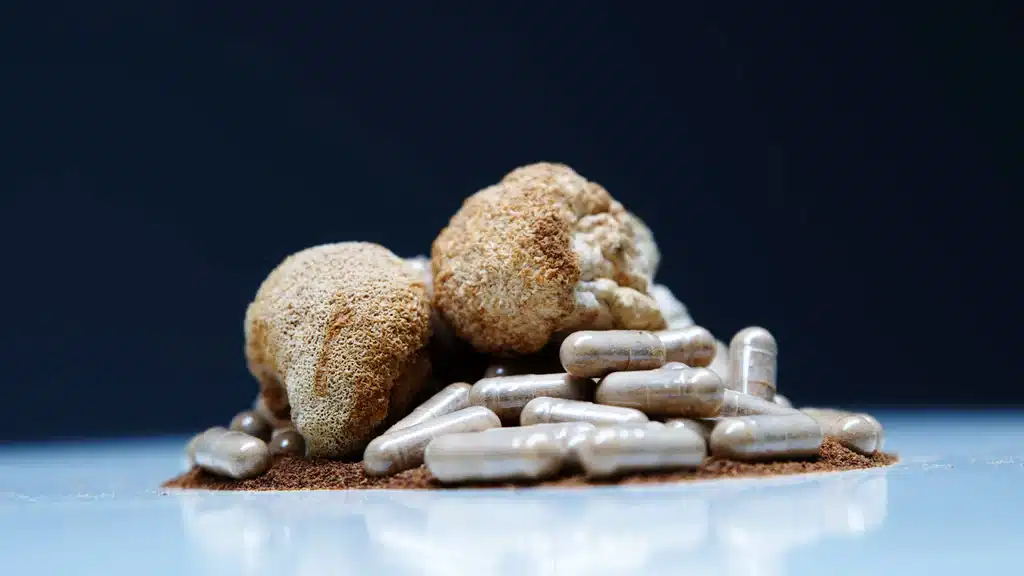Introduction
Coffee is a beloved beverage enjoyed by millions around the world. Whether you’re a fan of the bold kick that regular coffee provides or you prefer the smooth, mellow taste of decaf, understanding the differences between the two can help you make the best choice for your lifestyle. This article delves into the key differences, benefits, and potential drawbacks of both decaf and regular coffee, helping you decide which one suits your needs and preferences. Whether you’re looking to cut back on caffeine or enjoy its stimulating effects, there’s a coffee option out there for you.
Quick Summary
- Decaf Coffee: Contains significantly less caffeine; retains antioxidants; may lower the risk of Type 2 diabetes; promotes better sleep.
- Regular Coffee: High caffeine content; enhances alertness and physical performance; may reduce the risk of Parkinson’s disease and certain cancers.
- Decaf Drawbacks: Possible chemical exposure; slightly different flavor.
- Regular Drawbacks: Potential caffeine dependency; sleep disruption.
What is Decaf Coffee?

Decaf coffee, or decaffeinated coffee, is a type of coffee that has had most of its caffeine removed. This process allows people to enjoy the rich flavors of coffee without the stimulating effects of caffeine. Decaf coffee still retains the essence and aroma of regular coffee, making it a great option for those who love the taste but want to avoid caffeine.
The journey of decaf coffee begins with green coffee beans, which are unroasted and full of natural caffeine. These beans undergo one of several decaffeination processes to remove the caffeine. The most popular methods include the Swiss Water Process, solvent-based methods, and the CO2 process.
Flavor and Nutritional Content
Despite the removal of caffeine, decaf coffee retains many of the beneficial compounds found in regular coffee. It still contains antioxidants, which help fight free radicals in the body. Additionally, decaf coffee can have a slightly different flavor profile compared to regular coffee, often being described as smoother and less bitter. The type of coffee bean and the roasting process also play significant roles in the final taste of decaf coffee.
Decaf coffee is a fantastic option for those who love coffee but need to limit their caffeine intake. Whether you enjoy a cup in the evening without worrying about sleep disruption or prefer it for health reasons, decaf offers a way to savor the rich, complex flavors of coffee at any time of day.
What is Regular Coffee?

Regular coffee, often simply called coffee, is a beloved beverage made from roasted coffee beans. It is known for its rich flavors, invigorating aroma, and, most notably, its caffeine content. Caffeine is a natural stimulant that provides the energy boost many people seek in the morning or during the day. Let’s delve deeper into what makes regular coffee so special.
Caffeine Content
The defining feature of regular coffee is its caffeine content. An average 8-ounce cup of regular coffee contains approximately 95 mg of caffeine, although this can vary based on factors like the type of bean and brewing method. Caffeine is what gives coffee its stimulating properties, helping to increase alertness and reduce fatigue.
Health Benefits
Decaf Coffee
Decaf coffee offers many of the same health benefits as regular coffee, minus the high caffeine content. For those who are sensitive to caffeine or prefer to limit their intake, decaf coffee can be a great choice without compromising on flavor or health perks.
Antioxidant Properties
Just like regular coffee, decaf coffee is rich in antioxidants. These compounds, such as chlorogenic acid and polyphenols, help combat oxidative stress by neutralizing free radicals in the body. Oxidative stress is linked to various chronic diseases, so the antioxidants in decaf coffee can play a role in reducing the risk of conditions like heart disease and cancer.
Reduced Risk of Type 2 Diabetes
Research suggests that decaf coffee can lower the risk of developing Type 2 diabetes. A study published in the Archives of Internal Medicine found that each daily cup of decaf coffee was associated with a 7% reduced risk of Type 2 diabetes. The bioactive compounds in coffee, including chlorogenic acid, may improve glucose metabolism and insulin sensitivity, contributing to this protective effect.
Improved Sleep and Reduced Anxiety
One of the primary benefits of decaf coffee is its low caffeine content, typically containing only 2-5 mg per 8-ounce cup. This minimal caffeine amount makes decaf an ideal choice for those who enjoy coffee in the evening or are sensitive to caffeine’s stimulating effects. Drinking decaf coffee can help prevent sleep disturbances and reduce anxiety, offering a more relaxing experience.
Heart Health
While regular coffee’s impact on heart health can be mixed due to its caffeine content, decaf coffee is associated with positive cardiovascular effects. Some studies suggest that decaf coffee can reduce blood pressure and improve endothelial function, contributing to overall heart health. The antioxidants in decaf coffee also help reduce inflammation, which is a key factor in heart disease.
Regular Coffee
Regular coffee, with its natural caffeine content, is renowned for its stimulating effects and numerous health benefits. It is a staple for many people seeking a boost in energy and mental clarity.
Increased Alertness and Cognitive Function
The caffeine in regular coffee acts as a powerful stimulant. By blocking adenosine, a neurotransmitter that promotes relaxation and sleepiness, caffeine increases the release of other neurotransmitters like norepinephrine and dopamine. This leads to improved alertness, concentration, and overall cognitive function. Regular coffee is often used to enhance performance during tasks requiring sustained attention and quick thinking.
Enhanced Physical Performance
Caffeine is known to enhance physical performance, making regular coffee a popular choice among athletes and fitness enthusiasts. By increasing adrenaline levels and breaking down body fat, caffeine provides an energy boost and improves endurance. Studies have shown that consuming caffeine before physical activities can enhance performance by up to 12%, making it a valuable addition to pre-workout routines.
Antioxidant Properties
Regular coffee is one of the richest sources of antioxidants in the diet. These antioxidants, including chlorogenic acid and quinines, help protect cells from damage caused by free radicals. This protective effect can reduce inflammation and lower the risk of chronic diseases such as cancer and cardiovascular disease. The antioxidants in coffee also contribute to its potential anti-aging benefits by protecting skin cells from damage.
Potential Drawbacks
Decaf Coffee
While decaf coffee offers many benefits, it is not without its potential drawbacks. Understanding these can help you make a more informed decision about incorporating decaf into your routine.
Possible Chemical Exposure
One of the primary concerns with decaf coffee is the method used to remove caffeine. Some decaffeination processes involve chemical solvents such as methylene chloride or ethyl acetate. These chemicals are used to extract caffeine from the coffee beans. Although the final product is thoroughly washed and considered safe for consumption, trace amounts of these chemicals may remain. For those wary of chemical exposure, choosing decaf coffee processed with the Swiss Water Process or the CO2 method can be a safer option as these methods avoid the use of harsh chemicals.
Taste Differences
Decaf coffee can taste slightly different from regular coffee. The decaffeination process can sometimes alter the flavor profile, resulting in a milder or less robust taste. While many people enjoy the smoother flavor of decaf, others may miss the full-bodied and rich flavors typically associated with regular coffee. The type of coffee bean and the roasting process can also influence the taste, so it might take some experimentation to find a decaf coffee that suits your palate.
Nutrient Loss
The process of decaffeination can sometimes lead to a loss of certain nutrients and beneficial compounds found in coffee beans. While decaf still retains many antioxidants, the levels might be slightly lower compared to regular coffee. This reduction is generally minimal, but it is something to consider if you are seeking to maximize the health benefits from your coffee consumption.
Regular Coffee
Regular coffee, despite its many benefits, also has potential drawbacks that need to be considered. The stimulating effects of caffeine, while beneficial to many, can pose problems for some individuals.
Caffeine Dependency
Regular coffee contains significant amounts of caffeine, which can lead to dependency over time. Frequent consumption can make the body reliant on caffeine to function optimally. If a regular coffee drinker suddenly reduces their intake, they might experience withdrawal symptoms such as headaches, irritability, fatigue, and difficulty concentrating. This dependency can make it challenging for individuals to cut back on their coffee consumption, even if they wish to.
Sleep Disruption
One of the most common issues associated with regular coffee is its potential to disrupt sleep patterns. Consuming caffeine late in the day can interfere with the ability to fall asleep and reduce overall sleep quality. For those sensitive to caffeine, even a morning cup of coffee can affect their sleep later in the day. Poor sleep quality can lead to a range of health issues, including increased stress, weakened immune function, and impaired cognitive performance.
Digestive Issues
Coffee’s acidity can sometimes cause digestive discomfort, particularly for those with sensitive stomachs. Regular coffee can increase stomach acid production, leading to issues like acid reflux, heartburn, and indigestion. Individuals with gastrointestinal conditions such as gastritis or irritable bowel syndrome (IBS) might find that regular coffee exacerbates their symptoms.
Taste and Flavor
Decaf and regular coffee can taste similar, but subtle differences may exist due to the decaffeination process. Factors such as the type of coffee bean and roasting method also play a role in flavor. Decaf may have a slightly milder taste compared to its caffeinated counterpart.
Who Should Choose Decaf?
Decaf coffee is an excellent choice for many people who enjoy the taste of coffee but want to avoid the stimulating effects of caffeine. Here are some groups of people who might benefit from choosing decaf:
Individuals Sensitive to Caffeine
If you find that regular coffee leaves you feeling jittery, anxious, or with a racing heart, decaf might be the better option. Caffeine sensitivity can vary greatly from person to person, and for those who experience adverse effects even with small amounts, decaf offers a way to enjoy coffee without the unpleasant side effects.
Pregnant or Breastfeeding Women
Health professionals often recommend that pregnant or breastfeeding women limit their caffeine intake to avoid potential risks to the baby. Decaf coffee provides a safer alternative, allowing expectant or new mothers to savor their favorite beverage without the worry of excessive caffeine affecting their child.
People with Certain Medical Conditions
Individuals with specific medical conditions, such as heart arrhythmias, hypertension, or acid reflux, may be advised to reduce their caffeine consumption. Decaf coffee can help manage these conditions by minimizing caffeine-related exacerbations while still providing the pleasure of drinking coffee.
Who Should Choose Regular Coffee?
Regular coffee, with its robust flavor and energizing caffeine content, is a favorite choice for many people. Here are some groups of individuals who might find regular coffee particularly beneficial:
Those Seeking an Energy Boost
If you rely on coffee to kickstart your day or to keep you going during long hours at work, regular coffee is an ideal choice. The caffeine in regular coffee can help increase alertness, improve concentration, and combat fatigue, making it perfect for those needing a mental and physical boost.
Individuals Who Enjoy Robust Flavors
Coffee enthusiasts who appreciate the rich and complex flavors of various coffee blends often prefer regular coffee. The caffeine content in regular coffee can enhance its taste, providing a more intense and satisfying experience. From light roasts with bright, acidic notes to dark roasts with deep, bold flavors, regular coffee offers a diverse palate of tastes that decaf often can’t match.
Athletes and Fitness Enthusiasts
Caffeine is known to enhance physical performance by increasing adrenaline levels and improving endurance. Regular coffee can be a valuable part of a pre-workout routine, helping athletes and fitness enthusiasts perform at their best. Its ability to mobilize fatty acids from fat tissues also makes it a useful aid for those looking to optimize their workout results.
Performance Boosts from Functional Mushrooms
Incorporating functional mushrooms into your coffee routine can provide additional health benefits that complement those of both decaf and regular coffee. Functional mushrooms like Lion’s Mane, Cordyceps, and Reishi have been used for centuries in traditional medicine for their potent health-enhancing properties. Here’s how these remarkable fungi can boost your performance and well-being.
Lion’s Mane
Lion’s Mane mushrooms are renowned for their cognitive benefits. They contain compounds that promote the production of nerve growth factor (NGF), which is crucial for the growth, maintenance, and survival of neurons in the brain. This can lead to improved memory, focus, and overall brain function. Including Lion’s Mane in your coffee can help enhance mental clarity and cognitive performance, making it a great addition for those who need to stay sharp throughout the day.
Cordyceps
Cordyceps mushrooms are famous for their ability to enhance physical performance and energy levels. They increase the production of adenosine triphosphate (ATP), the primary energy carrier in cells, which can improve the efficiency of oxygen utilization in the body. This results in enhanced stamina, endurance, and reduced fatigue. For athletes and active individuals, adding Cordyceps to your coffee can provide a natural and sustained energy boost without the jitters often associated with high caffeine intake.
Reishi
Reishi mushrooms are known for their calming and stress-relieving properties. They help balance the body’s stress response and support the immune system. Reishi can promote relaxation and improve sleep quality, making it an excellent addition to decaf coffee for a soothing evening drink. Additionally, its anti-inflammatory and antioxidant effects contribute to overall health and resilience.
How to Incorporate Functional Mushrooms
Functional mushroom powders or extracts can easily be added to your coffee. Many products are available that blend these mushrooms with coffee, making it convenient to enjoy their benefits. When choosing a product, look for high-quality, organically sourced mushrooms to ensure you’re getting the best possible health benefits.
Adding functional mushrooms to your coffee routine can provide a balanced boost to both mental and physical performance. Whether you’re looking to enhance cognitive function, increase energy levels, or promote relaxation, these powerful mushrooms offer a natural and effective way to elevate your coffee experience.
Conclusion
Decaf and regular coffee each bring their own unique benefits and potential drawbacks to the table. Decaf coffee offers a way to savor the rich flavors of coffee without the jitters or sleep disruptions, making it an excellent choice for those sensitive to caffeine, pregnant or breastfeeding women, or anyone looking to cut down on their caffeine intake. It still retains many health benefits, such as antioxidants and the potential to lower the risk of Type 2 diabetes.
On the other hand, regular coffee is perfect for those who need an energy boost and enjoy its robust, complex flavors. It’s packed with antioxidants and has been linked to numerous health benefits, including enhanced physical performance and a reduced risk of several diseases. However, its caffeine content can lead to dependency, sleep issues, and other health concerns for some individuals.
Ultimately, the choice between decaf and regular coffee depends on your personal preferences, health considerations, and lifestyle needs. Whether you’re looking for a soothing evening beverage or a morning pick-me-up, there’s a coffee option that can fit seamlessly into your routine. Enjoying coffee, in moderation, can be a wonderful addition to your daily life, providing both pleasure and health benefits.


